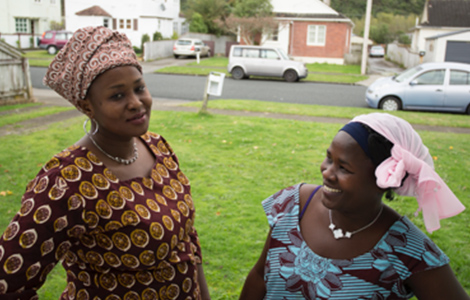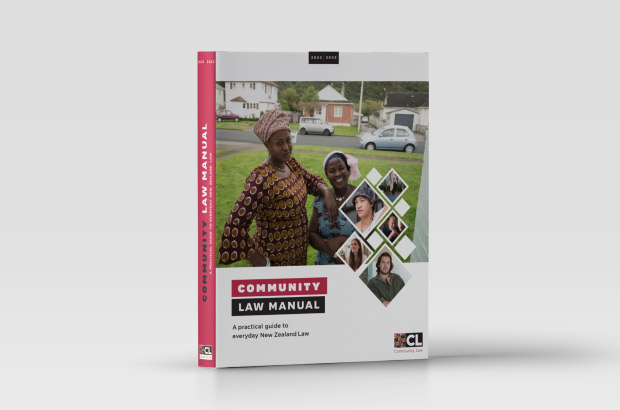Deportation: Being made to leave New Zealand
Appealing against deportation to the Immigration and Protection Tribunal
The appeal process
How much time do I have to appeal my deportation to the Immigration and Protection Tribunal?
This will depend on why you’re being deported. We’ve explained the different time limits for appealing in the sections above that set out the grounds on which Immigration New Zealand can deport you (see: “When you can be deported: Grounds for deportation”).
Will the Tribunal hold a hearing where I can talk to them in person?
Immigration Act 2009, ss 233, 234
The Immigration and Protection Tribunal usually won’t hold a hearing where you and Immigration New Zealand can go and speak to them face to face (called “an oral hearing”). Usually they’ll just decide your appeal by reading all the written evidence and arguments from the two sides – called deciding the case “on the papers”. You can ask the Tribunal to hold an oral hearing, but you’ll need to provide reasons why you need one.
In one case, a person making an appeal asked the Tribunal to hold an oral hearing. Since she hadn’t given any reasons for this, but had provided a lot of written evidence, the Tribunal refused her request.
Appealing on special humanitarian grounds
The grounds for a humanitarian appeal: What you’ll need to show
Immigration Act 2009, s 207(1)
To get the Immigration and Protection Tribunal to let you stay on humanitarian grounds, you’ll need to satisfy them that all of the following three things are true:
- there are exceptional humanitarian circumstances in your case, and
- those circumstances would make it “unjust or unduly harsh” for you to be deported, and
- letting you stay wouldn’t be against the public interest.
Below, we explain each of those three requirements in some more detail.
Exceptional humanitarian circumstances
Cases: [2009] NZSC 76 [2010] 1 NZLR 104 – [2014] NZHC 2882 [1995] NZAR 509
The courts have ruled that the exceptional humanitarian circumstances threshold is a high one, and that your situation has to be “well outside the normal run of circumstances”. It’s not enough that your circumstances cause you or family members difficulty or hardship or are emotionally upsetting. On the other hand, your situation doesn’t have to be unique or very rare in order to be “exceptional”.
The word “humanitarian” is given a fairly wide meaning and can include a broad range of factors. The Immigration and Protection Tribunal has interpreted “humanitarian” as meaning simply to do with “the interests and welfare of people”.
Being separated from family members isn’t necessarily an exceptional humanitarian circumstance on its own, and you’ll need to show something beyond the consequences that are inevitably involved in any forced family separation. But family separation will always be a relevant factor to consider as part of the overall circumstances of your case.
Being able to earn a better income in New Zealand than back home doesn’t of itself amount to exceptional humanitarian circumstances. So unemployment, or even poverty, isn’t enough. However, this will be a matter of degree, and poverty, starvation and disease may amount to exceptional humanitarian circumstances.
“Unjust or unduly harsh”
When the Immigration and Protection Tribunal looks at whether making you leave New Zealand would be “unjust or unduly harsh,” it has to look at how you came to be here unlawfully and balance that against the consequences for you if you’re deported.
Cases: [2016] NZIPT 502756; [2016] NZIPT 502668
When it considers how you came to be here unlawfully, a key issue will be whether you acted honestly and in good faith or whether you tried to deceive or get around the immigration system in some way.
In one case, for example, the Tribunal focused on the fact that the person appealing had been refused a visa not because of anything she had done or not done, but because she needed to get a consent document from her ex-partner and she genuinely couldn’t find him.
By contrast, if you’ve been guilty of some kind of wrongdoing or some dishonest or deceptive behaviour, you’ll need to show that the consequences for you of being deported will be particularly severe, in order to off-set that wrongdoing or other behaviour.
The public interest
Once you’ve successfully shown the Tribunal that in your case there are exceptional humanitarian circumstances that would make deporting you unjust or unduly harsh, you need to show that letting you stay wouldn’t be against the public interest. The Tribunal will look here mainly at whether your health is satisfactory, and whether you have a clear police record both in New Zealand and back home (“character” issues).
Examples of appeals: A successful appeal
The Tribunal allowed an appeal from a 71-year-old South African woman (here we’ll call her “S”) whose three sons and their children were all now living in New Zealand.
The Tribunal worked through the three requirements for an appeal to succeed. First, it found there were exceptional humanitarian circumstances because of S’s age, her dependence on her sons in New Zealand, and the lack of any support for her back in South Africa.
Next, the Tribunal looked at whether deporting S would have been “unjust or unduly harsh”. The law here requires the Tribunal to balance the reasons why the person is being deported against the consequences for them of being deported. In this case Immigration New Zealand had refused S another Visitor Visa because she’d been diagnosed with probable cancer in the left lung; they decided she didn’t have an acceptable standard of health, because she was likely to impose significant health costs or demands on New Zealand. However, the Tribunal emphasised that the cancer diagnosis hadn’t been confirmed, and that in other ways S was in good health and leading an active lifestyle. The Tribunal also said S hadn’t known about the possible cancer when she came here, so it was clear she hadn’t deliberately tried to deceive the immigration system. Because S would have no support in South Africa, the Tribunal decided it would be unjust or unduly harsh to make her go back.
Finally, the Tribunal had to look at the public interest. It said that because the cancer diagnosis was unconfirmed at that point, the potential health costs were uncertain. Also, there were no character problems, as S’s police certificates were clear. So, the potential health burden to New Zealand was outweighed by the humanitarian factors: her age and vulnerability, her strong connection (“nexus”) with New Zealand, and her continuity of family relationships with her New Zealand children, on whom she was dependent.
An unsuccessful appeal
The Immigration and Protection Tribunal turned down an appeal from a 21-year-old Indian man who had had a Student Visa and then a Work Visa in New Zealand. Immigration New Zealand had refused him another work visa as they didn’t think his employment prospects were sustainable.
Apart from his study and his work, the man didn’t have any particular links to New Zealand, either in the form of personal relationships or community involvement. The Tribunal said his family “nexus” (connection) was with India, not New Zealand, and there was no reason why he couldn’t return to India and re-establish himself there. He would be returning to India with a cooking qualification and some work experience, and so had some employment prospects there. The fact that he wanted to take advantage of better employment opportunities in New Zealand compared to India doesn’t of itself amount to exceptional humanitarian circumstances.
Because the man hadn’t persuaded the Tribunal that there were exceptional humanitarian circumstances in his case, the Tribunal didn’t need to look at the other two issues involved with these appeals – namely, the “unjust or unduly harsh” requirement and the “public interest” element.
Note: As those two examples indicate, it’s important to be able to show a significant connection (“nexus”) with New Zealand. In your appeal, you should emphasise all your different connections and involvements with your local New Zealand community; this will include your family and other personal relationships with people here as well as your participation in community organisations and in activities like sports clubs, community gardens or other volunteering.


